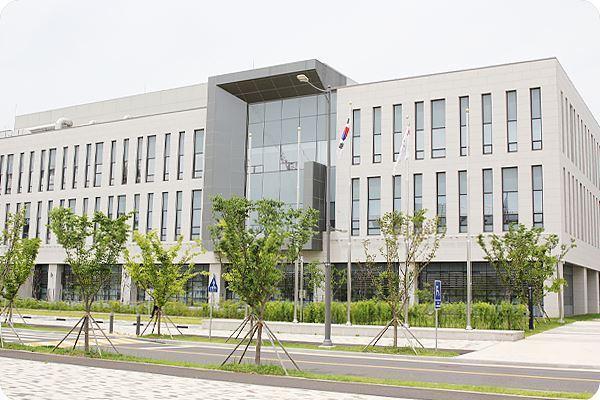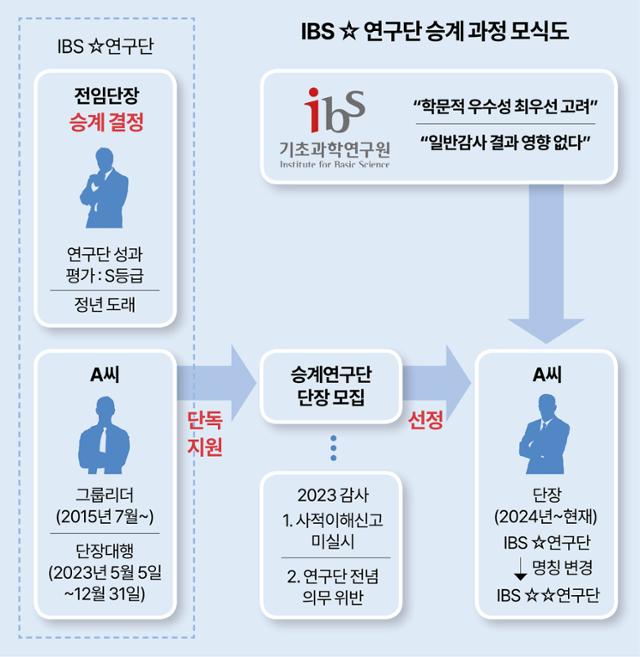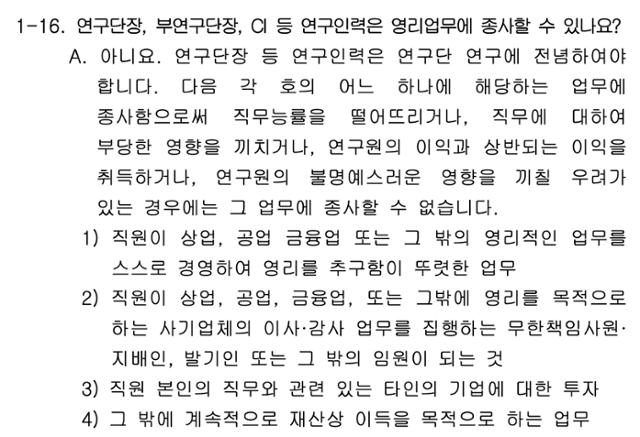Receiving Government Research Funds in Korea,
①Established Personal Company and Became CEO
②Papers Feature Numerous Authors from Home Country
③Annual Long-Term Trips to Home Country
Yet Still Appointed as Director at Basic Science Research Institute,
Editor’s Note
The Basic Science Research Institute (IBS) was established 13 years ago claiming to focus budget and grant autonomy to secure research capabilities at the Nobel Prize level. However, the research field perspective found by the Korea Times is not favorable. It’s time for the government to step in before the sense of deprivation deepens in the field.
,

The Basic Science Research Institute (IBS) located in Yuseong-gu, Daejeon. IBS website screen capture,
,
, ‘It was revealed that a foreign research director at the IBS dedicated time to research with his home country instead of Korea, even establishing a private company, and received a caution and warning from an internal audit last year. Despite inheriting a large-scale research team with an annual research fund reaching tens of billions of won without significant competition, the authors of his main papers were mostly from his home country and not affiliated with IBS.’,
,
, “Established in Daejeon in 2011 to enhance Korea’s basic science competitiveness, IBS was expected to become the cradle of Korea’s Nobel Science Prizes. However, there are growing criticisms both inside and outside the scientific community that it has been over 10 years without notable differentiation and competitive edge compared to other government-funded research institutions. It is especially necessary to assess what substantial contributions foreign scientists who have been ‘invited’ with many benefits have made to Korea.”,
,
,
,
What Contribution Has Been Made to Korean Basic Science?
,

Graphic=Journalist Kang Jun-goo,
,
, ‘A person given a caution and warning in an audit, identified as A, joined IBS in 2015 through a connection with an American scientist who was the research director at the time. With the existing director’s retirement approaching in 2022, IBS, judging the results as good, decided to maintain the research team and proceeded to appoint a new director. A, who was the group leader within the team, submitted a single application, and issues emerged during the selection process audit.’,
,
, ‘According to IBS internal audit materials obtained by the Korea Times through the office of Assemblyman Hae-min Lee of the National Innovation Party, A established a company related to his research field in 2018, held 100% of the stock, and served as vice president until February 2022. A had also been president of a company he founded in 2009 until 2017. IBS research staff cannot hold positions as an officer or manager of a for-profit company and are prohibited from investing in others’ companies related to their duties due to operational regulations requiring dedication to the IBS research team. The audit report criticized IBS for taking no action after recognizing A’s violation of these rules through an internal committee last year.’,
,
,

Getty Imagesbank,
,
, “A was also criticized for his research performance. From joining the research team until May last year, he published a total of 80 papers, and 37 papers (46.3%) were co-authored with scientists from specific research institutes in his home country. Out of these, 19 papers were used as proof of excellence during performance evaluations at IBS. The audit report stated that this was a personal research activity not receiving human or material resources from IBS and should be distinct from results directly obtained at the IBS research team. Among A’s papers, those published in the so-called ‘lead three science journals’ (Nature, Science, Cell) as per Google Scholar totaled 36. Of these, 14 papers (38.9%) did not feature IBS-affiliated authors, instead being credited to research staff from A’s own company and his home country institutions. There was no paper among the 36 where a Korean IBS scientist from the same lab as A was the first author.”,
,
, ‘IBS allows limited external activities to its research staff, including foreigners, under the principle that they should dedicate themselves to the research team. However, if even the most important output, such as papers, is filled with authors not affiliated with IBS, it raises questions about whether A’s research can be considered as IBS achievements and if A has contributed to the development of Korean basic science. Furthermore, A made annual long-term trips to his home country, spending between 90 to 117 days annually there in recent years except during the COVID-19 pandemic.’,
,
,

Research personnel for-profit work-related criteria specified in ‘Research Team and CI Research Group Selection, Composition, and Operation Q&A (FAQ)’ on the IBS website. IBS website screen capture,
,
,
,
What Did the IBS Board and Ministry of Science and ICT Do?
,
,
, ‘Despite these audit findings, A has been appointed as the research director this year. It reflects a precedent where an existing foreign director transferred to another foreign director who received no significant sanctions after an admonishment during an audit. As of last year, the average budget for an IBS research team in the experimental field was about 5.7 billion won annually. An IBS official stated, “The most important criterion for selecting a director is academic excellence, so general audit findings did not influence the decision.” However, there is debate within the scientific community about whether ‘academic excellence’ can outweigh the clear rule violations pointed out in the internal audit findings.’,
,
,

A picture drawn using generative AI on the theme of basic science research funding. DALL-E 3, Journalist Oh Ji-hye,
,
, ‘A’s controversy revealed vulnerabilities within IBS, as some analysis suggests. In response to the audit’s demand to distinguish between external activities and institutional achievements, IBS cited ‘researcher’s conscience and self-regulation’ as the main countermeasures. An IBS official stated, “We provided guidelines to encourage self-assessment when submitting performances” and suggested that researchers’ self-regulation activities, along with internal evaluation committee reviews, could resolve the issue. Regarding the IBS research staff’s for-profit-related tasks, the audit report pointed out the lack of clear grounds, procedures, or standards and the absence of follow-up inspections, though measures were only introduced last month, nearly a year later.’,
,
, ‘IBS has focused on recruiting foreign scientists with excellent achievements to introduce advanced research methods from overseas. However, it faces criticism for providing authority without proper management, leaving it difficult to avoid censure. The Ministry of Science and ICT, overseeing IBS as a supervisory agency, explained that it receives reports on IBS’s projects, operations, and budget plans but lacks specific supervisory measures. Nonetheless, being part of the regular IBS board, it cannot escape responsibility, and a Ministry official commented, “If there are shortcomings in the follow-up to the audit report’s findings, there is a need to rectify them.”

